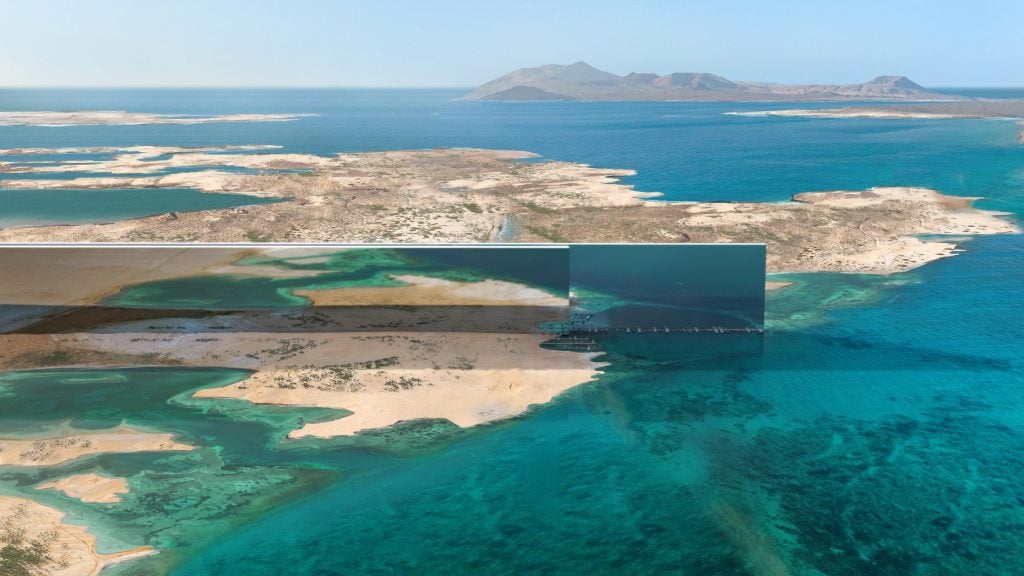Neom has announced that Nadhmi al-Nasr is no longer its chief executive amid reports of financial issues and migrant worker fatalities connected to the Saudi Vision 2030 projects.
Neom announced that Al-Nasr, who has led the development of the controversial giga project in Saudi Arabia since 2008, has departed the project in a statement on its website. No official reason has been given for his departure.
The news comes in the wake of an ITV documentary that stated there have reportedly been 21,000 migrant worker fatalities in the country since the Saudi Vision 2030 projects began eight years ago. Neom is the most high profile of the Saudi Vision 2030 giga projects.
“Neom enters a new phase of delivery”
Following Al-Nasr’s departure, Aiman Al-Mudaifer has become acting CEO for the project, which includes the 170-kilometre-long city The Line.
“As Neom enters a new phase of delivery, this new leadership will ensure operational continuity, agility and efficiency to match the overall vision and objectives of the project,” said a statement on the Neom website.
“Neom is a fundamental pillar of Saudi Vision 2030 and progress continues on all operations as planned as we deliver the next phase of our vast portfolio of projects including The Line, Oxagon, Trojena, Magna and The Islands of Neom.”
The controversial Neom development in the north west of Saudi Arabia, which along with The Line includes the Oxagon port city, Trojena ski resort, and Magna resorts on the Red Sea, is one of the largest developments in the world.
The project has repeatedly made the news and, most recently, was part of the Kingdom Uncovered: Inside Saudi Arabia documentary on ITV, which focused on working conditions for migrant workers in the country.
“Exclusive figures” reveal 21,000 foreign worker deaths
Along with revealing harsh conditions, including people reportedly working 84-hour weeks on Neom projects, the documentary included fatality figures for migrants from India, Bangladesh and Nepal.
“New exclusive figures reveal that 21,000 foreign workers from India, Bangladesh and Nepal have died since Vision 2030 was launched,” said ITV.
In response to the documentary, Neom issued a statement to ITV stating that it would investigate the reports.
“We are assessing the claims made in this programme and, where required, will take appropriate action,” said the statement.
“We require all contractors and subcontractors to comply with Neom’s code of conduct, based on the laws of Saudi Arabia and the policies of the International Labour Organization, and they are subject to frequent inspections of their workers’ living and working conditions.”
The documentary is the latest piece of reporting to draw attention to the controversies surrounding the Neom project. Earlier this year Dezeen asked if it was time for architecture studios to walk away from the project, following mounting human rights concerns.
It followed reporting by the BBC alleging that Saudi forces permitted the use of lethal force to clear land for the project, with human rights organisation ALQST drawing attention to reports that three men forcibly evicted from the Neom site were sentenced to death in 2022.
Along with human rights concerns, the project has also reportedly been beset with financial issues, leading to the ambitious scale of some projects to be potentially dialled back.
In April this year, it was reported by news agency Bloomberg that The Line mega-city will allegedly house fewer than 300,000 people by 2030, down from an original goal of 1.5 million.
Earlier this week, it was announced that Austrian studio Delugan Meissl Associated Architects and global studio Gensler are leading the design of phase one of The Line megacity. Other leading architecture studios working on Neom include BIG, Morphosis, Studio Fuksas, LAVA, Zaha Hadid Architects, UNstudio, OMA and Woods Bagot. We recently rounded up all the studios working on the scheme.
Neom is one of numerous large-scale developments taking place in the country as part of the Saudi Vision 2030 plan to diversify the country’s economy and reduce its dependence on oil. The projects are largely funded by the country’s Public Investment Fund (PIF).

